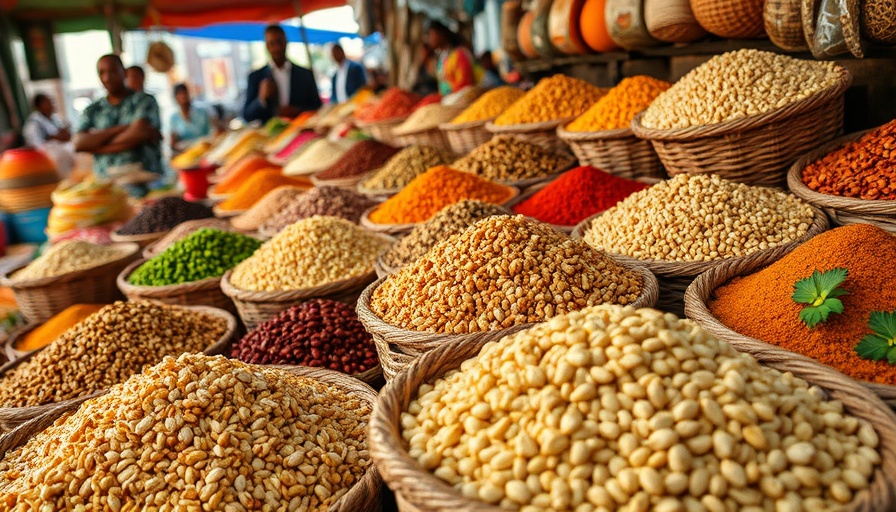
Discover the Health Benefits of the Tanzanian Diet: A Path to Longevity
The Tanzanian diet, particularly that practiced in the Kilimanjaro region, is gaining recognition not just as a traditional way of eating, but as a revolutionary approach to health that could extend life and enhance well-being. Grounded in a blend of fresh vegetables, legumes, ancient grains, and fermented foods, this diet shows promise in combating chronic conditions and promoting longevity. Let's explore the reasons why this diet stands out.
The Tanzanian Diet: A Nutritional Treasure Trove
Unlike the well-known Mediterranean diet, which encompasses olive oil, oily fish, and whole grains, the Tanzanian diet features a unique array of local ingredients. Common staples include millet porridge paired with fermented milk, root vegetables such as taro, and hearty combinations like plantains and kidney beans. Notably, the consumption of mbege, a fermented banana drink, exemplifies the diet's emphasis on gut health, contributing to its anti-inflammatory properties.
Unpacking the Scientific Evidence
A recent study published in Nature Medicine has showcased the robust health benefits linked to the Tanzanian diet. Research involving 77 men from various backgrounds revealed compelling changes in their health markers over just two weeks. Participants following the traditional Tanzanian diet experienced reductions in inflammation and marked improvements in metabolic profiles, effects that lingered long after dietary adjustments were made.
In sharp contrast, those that switched from this nutrient-dense diet to a Western-style one filled with processed foods faced detrimental impacts, including increased inflammation and reduced immune function. This stark comparison highlights the potential of the Tanzanian diet to safeguard long-term health.
Potential Risks and Considerations
While the benefits are compelling, it is essential to recognize that dietary changes should be undertaken thoughtfully. Shifting to a Tanzanian diet rather abruptly may not suit everyone, especially those with specific health conditions. Consulting with a healthcare professional before making significant dietary changes is recommended to tailor the approach to your unique health profile.
A Vision for Future Health Trends
The future of dietary practices may very well lean towards more traditional, plant-based diets, mirroring the Tanzanian approach. Issues such as rising obesity rates and related health problems in the Western world may drive a more extensive embrace of these nutrient-rich diets. Expect to see more attention on fermented foods and ancient grains as integral staples that could help reverse the tide of chronic diseases.
Exploring the Emotional Connection
A diet reflective of cultural heritage, like that of Tanzania, not only appeals to nutritional health but also resonates on an emotional level. Food connects people, and the shared traditions behind the Tanzanian cuisine bring communities together, enhancing social bonds, which are crucial for mental well-being.
Practical Steps to Integrate Tanzanian Foods
If you're eager to incorporate elements of the Tanzanian diet into your daily routine, start with simple substitutions. Introduce more whole grains like millet and sorghum into your meals, swap processed snacks for fresh fruits and homemade fermented foods, and incorporate legume-rich dishes.
Final Thoughts
As we delve deeper into the benefits of the Tanzanian diet, it becomes increasingly clear that our food choices have a profound impact on our health. By embracing a diet rich in anti-inflammatory foods, we can potentially enhance our quality of life and longevity.
With studies like these shedding light on the health benefits of traditional diets, it’s the perfect time to explore how integrating these practices could positively affect our lifestyles. Consider making small, manageable changes to your dietary habits and witness the remarkable transformations it can bring.
 Add Row
Add Row 

 Add Element
Add Element 


 Add Row
Add Row 
 Add
Add 
Write A Comment